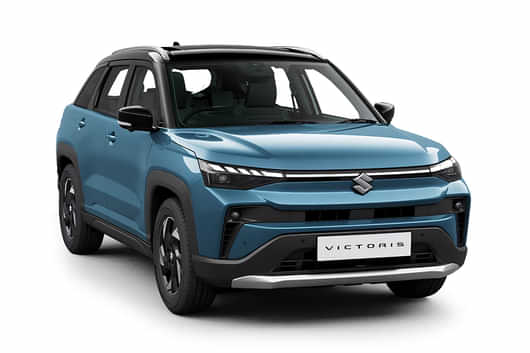
Budget 2023 had a lot of incentives for the E20 fuel pioneers. With the ethanol blending targets now being pulled forward, to meet the targets earlier, a lot of confusion remains about what exactly is it. How does it affect your vehicle? Why is it replacing your normal petrol?
Let us understand the nitty-gritty of the E20 Petrol and decode this jargon.
What Is E20 Petrol Or Flex Fuel?

E20 term simply indicates the percentage of ethanol mixed in 1 litre of fuel. E20 here means that 1 litre of Petrol contains 800 ml of petrol and 200 ml of ethanol, which converts to 20% of the overall percentage. This fuel is also known as flex fuel, a term that attracted a bunch of viewers at the Auto Expo 2023 as well. Maruti Suzuki WagonR was one such vehicle displayed with the flex fuel technology.
What Is Ethanol And How Is It Sourced?
Ethanol or Ethyl Alcohol is a biofuel, naturally derived from the fermentation of sugarcane or other organic materials like food grains. With the current petrol already rolling out with E10 rating, the E20 targets have been realigned for propelled growth.
The blending reduces the carbon footprint of fuel, something that India has promised. Since it is a naturally sourced product, it helps in reducing the harm associated with fuel burning.
Also, Read- Things Maruti Suzuki Brezza Gets Over Maruti Fronx: Key Highlights
Why Blending Is Increased
India is a major importer of crude oil. With much of its fuel requirements beings imported, the burden on the fiscal budget increases. India imported 185 million tonnes of petroleum at a cost of $551 billion in 2021.

By increasing the blending to 20%, the estimated saving will be $4 billion or 30,000 crore rupees annually. On top of that, India has a large area under sugarcane production, with even a surplus of it at most times. So, we can reduce our imports. Simultaneously Being naturally sourced, it is also less polluting than pure petrol combustion.
All in all, increased blending shoots two birds with one stone. Reduces the fiscal pressure and also the strain on the environment.
E20 Blending: Cheaper Than Pure Petrol
Since ethanol is cheaper than petrol, blending will help keep petrol costs down. Fewer imports, and more locally produced ethanol mixed, will help ease the burden on your pockets as well on your next trip to the fuel station.
Impact On Engine Performance
The research done in India asserted that there is little to no effect on the metals or the engine oil of the vehicle. But there was a reduced performance experienced with the E20 blended fuel.

Automotive Research Association Of India( ARAI), Indian Institute of Petroleum and Indian Oil Corporation research back in 2015 found a 6% drop in the fuel economy. The starting and drivability under hot and cold conditions were tested, and no major malfunction or stalling of the engine was observed.
Plus, a study by MIT and Honda's R&D team concluded that additional efficiency of 20% can be achieved if the engine is properly tuned.
Impact On Environment
As per the reports, emissions by the combustion in normal petrol vehicles consist of carbon monoxide(CO), hydrocarbons and oxides of nitrogen(NOx). The Central committee's report suggests that the blending of ethanol cuts down these emissions.
The Carbon monoxide emission was cut down by 50% in two-wheelers and by 30% in 4-wheelers. Hydrocarbon emissions saw a 20% reduction when compared to normal gasoline. Nitrogen oxide emissions were largely unaffected as it is dependent on the engine type and the operating conditions. The conclusion, however, was that ethanol blending reduces harmful emissions.
- Blending would help in running the cost and dependency of the imports down
- Robust local manufacturing infrastructure
- Helps in reducing the harmful emissions
VERDICT- With more percentage of ethanol blended with normal petrol, there are several benefits. Our dependency on crude will go down and surplus organic produce will be utilised for ethanol production. The financial strain on the budget will be relaxed by up to $4 billion annually. On top of that, the reduction in harmful emissions is one of the biggest driving forces in the adoption of E20 blended fuel. But there are certain shortcomings as well. The fuel economy and the performance do tend to take a slight hit, although not very seriously. Leaving the pros and cons aside, the E20 fuel is largely a step in the right direction for a country, our size, to adopt. We can expect to see some good results from this pivoting point.
Also, Read -Hyundai Creta Turbo Petrol And iMT Variants Discontinued: Read Details





















